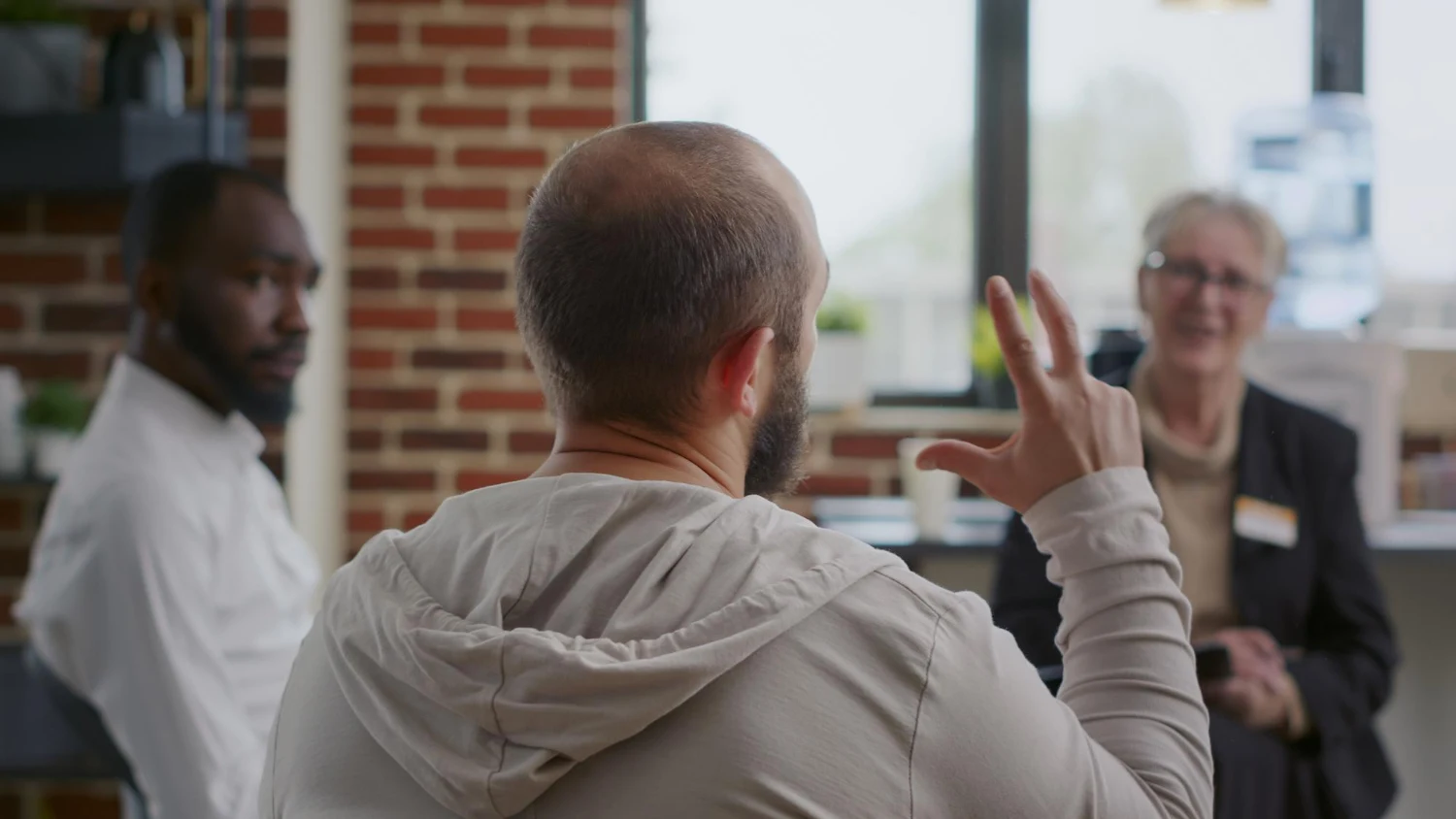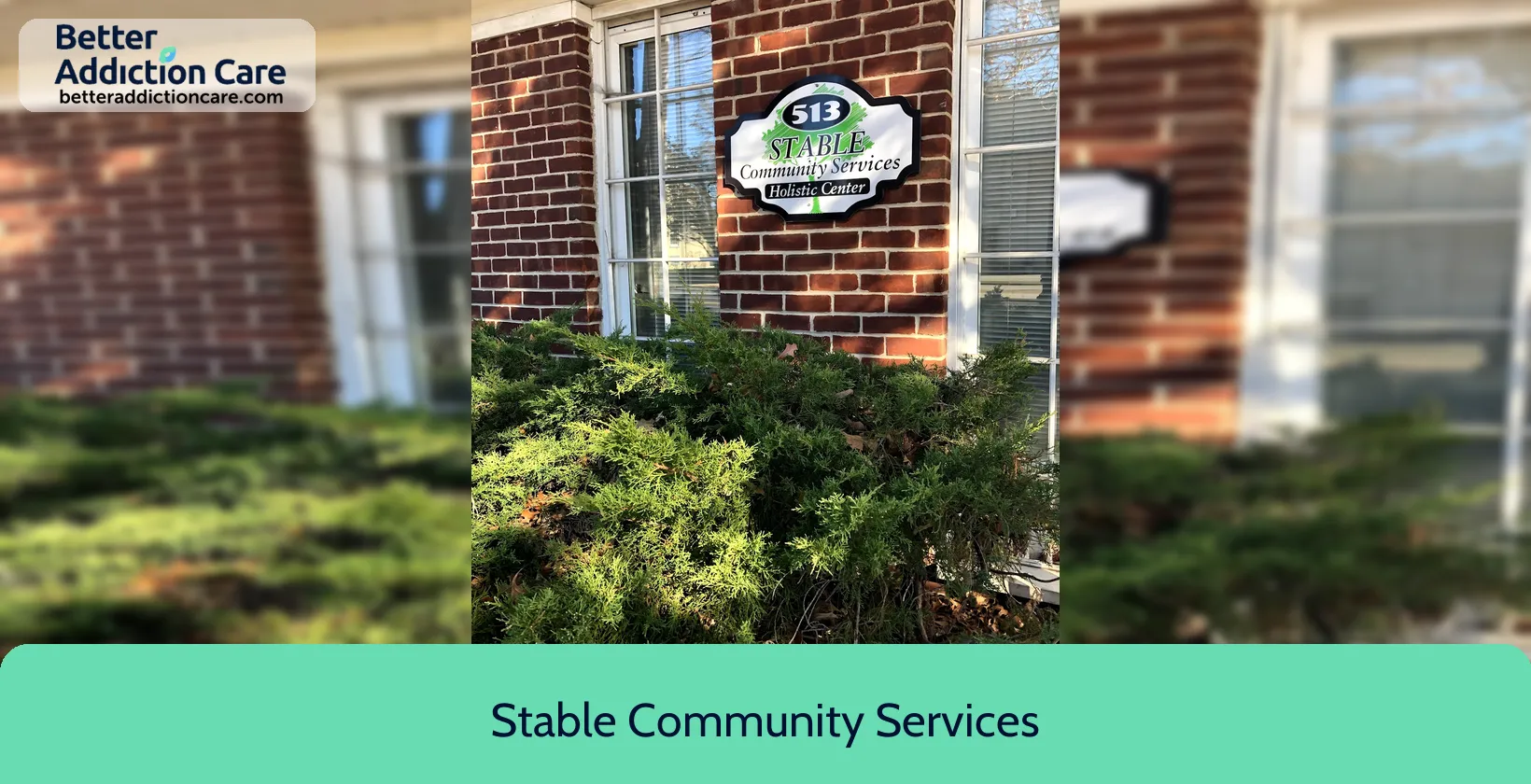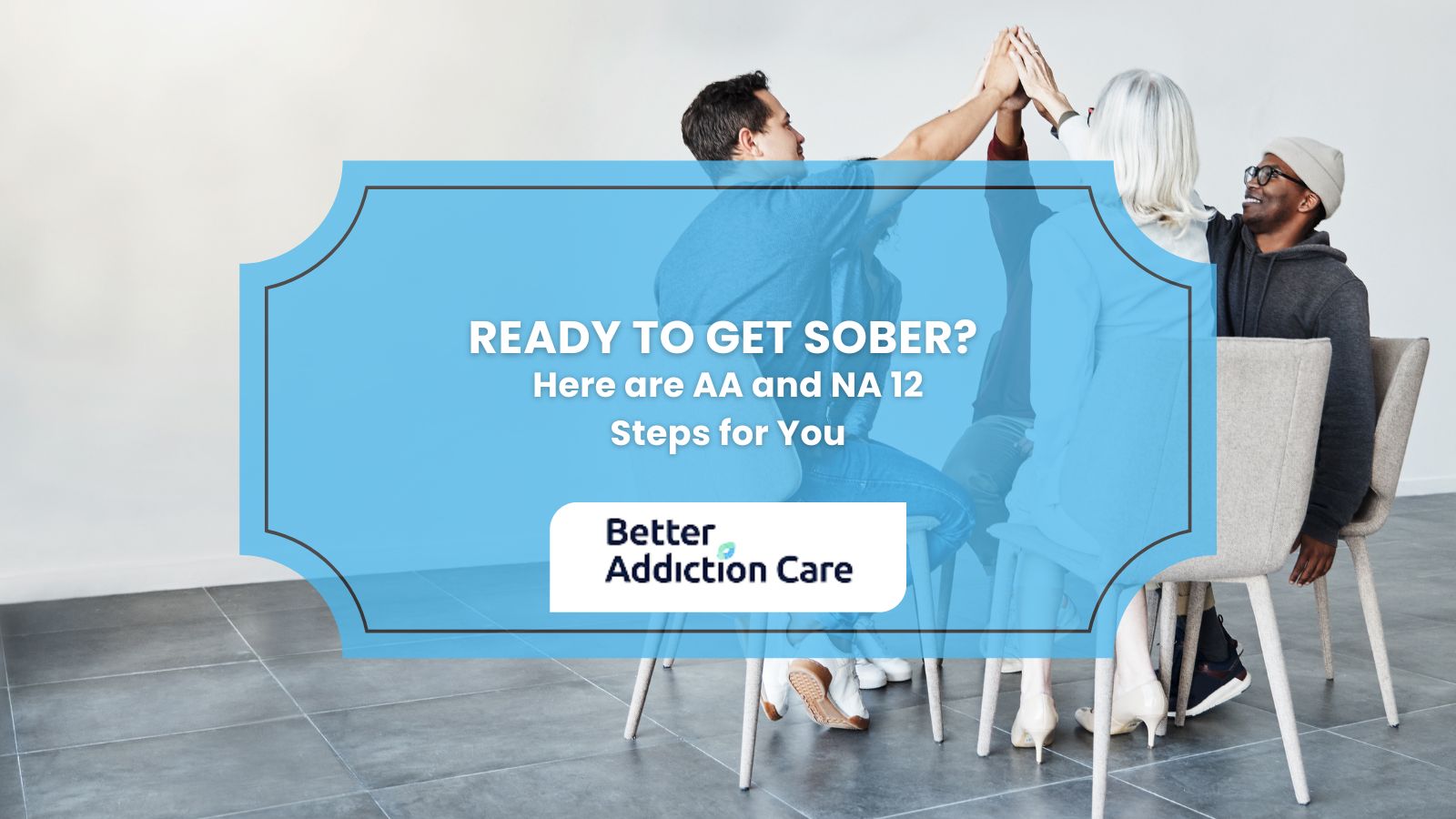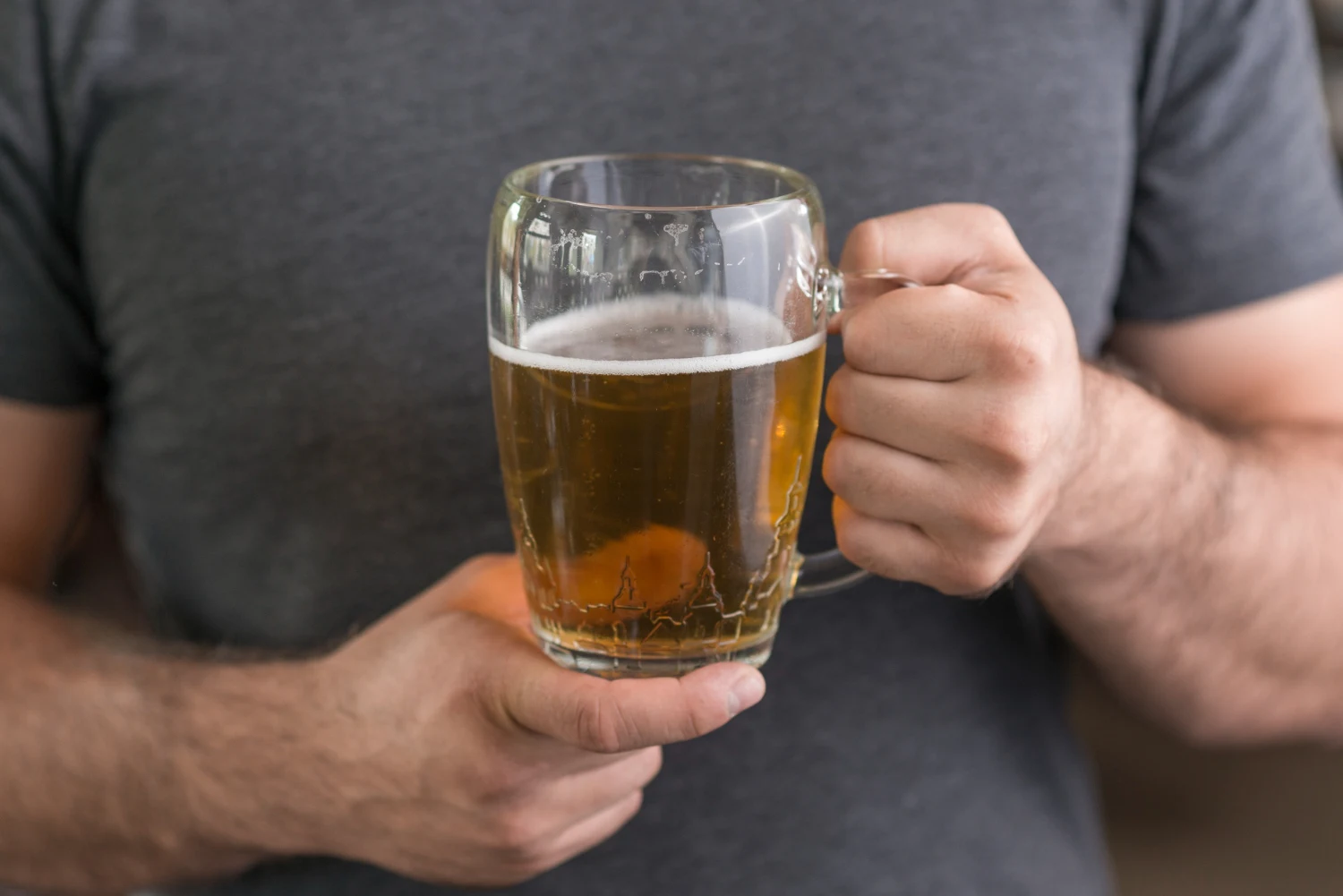-
Attend AA meetings regularly to observe and connect with experienced members
-
Identify someone whose recovery story and approach resonate with you
-
Approach them respectfully and honestly after a meeting or during a quiet moment
-
Share your current recovery stage and why you’re seeking a sponsor
-
Ask directly if they’re open to taking on a new sponsee
-
Be prepared for a “no” and continue searching without taking it personally
-
Discuss expectations and communication preferences to start the relationship, if accepted.
AA Sponsor Guide: Benefits, How to find an AA Sponsor and How to be an AA Sponsor
An AA sponsor is like a personal guide through the journey of sobriety. someone who’s walked the path and now walks beside you. They’re not a therapist, not a guru, and definitely not a life coach. They’re a fellow traveler who’s been through the storm and found some calm, offering their experience as a compass, not a map.
You have probably experienced what it is like to have a mentor. A mentor is always there for you, shares his knowledge, and encourages you to thrive. Maybe your mentor has been your dad, a teacher, or even a supervisor at work. Regardless of who your mentors have been, they share one thing: we always look up to them! For a recovering alcoholic attending Alcoholics Anonymous (AA), the closest thing to a mentor is an AA sponsor.

Your AA sponsor's main goal is to help you navigate through recovery and face relapse challenges through role modeling. Discover what an AA sponsor is, how to find them, and how to be effective in this insightful article.
What is an AA Sponsor?
AA is a support group for people struggling with alcohol. AA Sponsors offer support meetings worldwide and has helped millions of alcoholics. Two pillars of AA are mutual support among its members and the 12-step program, an effective set of guiding principles to overcome alcoholism. Having a Sponsor within AA is a source of support and helps its members navigate the 12-step program.
But what exactly is an AA Sponsor? Well, AA defines it as “A sponsor is an alcoholic who has made some progress in the recovery program and shares that experience on a continuous, individual basis with another alcoholic who is attempting to attain or maintain sobriety through A.A.”
So we can understand an AA sponsor as someone who has endured the same struggles as his sponsee, has familiarized himself with the 12-step program, and is willing to help a newcomer to navigate through their recovery journey.
Therefore, the role of AA sponsors is to share their knowledge and experiences through mentoring and help you remain sober.
What are the Responsibilities of an AA Sponsor?
An AA sponsor is responsible for guiding their sponsee through the 12-step program, encouraging active participation in AA, providing consistent emotional and practical support, and sharing their personal recovery experience to inspire hope and accountability.
A study by Pitts et al., titled "Role of AA Sponsors: A Pilot Study" in the year 2009, examined the role Alcoholics Anonymous (AA) sponsors play in recovery. Drawing from interviews and standardized questionnaires, the researchers found that sponsors, on average had attended meetings for 9.5 years and saw their role as deeply relational and purpose-driven.
They identified 3 key responsibilities sponsors felt were most important as listed below.
-
Encourage engagement with AA: Urging their sponsees to follow the 12-step program and stay active in AA meetings and events.
-
Offer consistent support: This includes regular contact, emotional encouragement, and practical assistance tailored to each individual’s needs.
-
Carry the message: By sharing their personal stories of addiction and recovery, sponsors help sponsees grasp the possibility of change and hope.
It paints a vivid picture of sponsorship not as a rigid role, but as an ongoing act of service rooted in empathy, shared experience, and resilience.
What are the Benefits of Having an AA Sponsor?
The benefits of having an AA sponsor includes essential guidance, accountability, and emotional support, increasing the chances of sustained sobriety and personal growth through shared experience.
As you can imagine, having an AA sponsor can be tremendously beneficial for a recovering alcoholic. After all, who does not want a mentor who can help you face the challenges of an unknown process and manage challenges effectively? But what does the scientific evidence say about AA sponsors? Do they have an impact on remaining sober?
The short answer is a big YES! Research has shown that people with AA sponsors tend to have better rates of alcohol abstinence at 12 months than people without sponsors (52% vs. 32%). Similarly, individuals with sponsors had 21% more abstinent days, and when drinking did occur, they had two drinks less than their counterparts with no sponsors. Another interesting finding was that people with sponsors at three months were three times more likely to be abstinent from alcohol at six months. This study concludes that having an AA sponsor was associated with increased alcohol abstinence and lesser alcohol craving.
Besides the scientifically proven benefits of AA sponsors, more advantages include:
-
Increased accountability: Monitoring progress and regular communication can help individuals stay focused and accountable to their goals
-
Guidance based on experience: Sponsors share their personal experiences, which can provide some insight into how to manage the challenges of relapse.
-
Personalized attention: Through their one-on-one communication, AA sponsors can focus on the specific problems of their sponsees and offer tailored advice on their needs.
-
Increased sense of psychological well-being for the sponsor: This is due to positive feelings that come from helping others
-
Role modeling: Role modeling is an important part of AA sponsorship. Sponsors often serve as a source of inspiration to their sponsees who look up to their example of successful recovery.
How to find an AA Sponsor?
To find an AA sponsor, regularly attend meetings, listen for shared experiences that resonate with you, and openly ask someone whose recovery journey aligns with your needs.
Although having an AA sponsor is not a make-or-break deal, it is beneficial. Therefore, finding a sponsor should be a priority for AA newcomers. New AA members are expected to find their sponsor.
Below are some strategies that can help you find a suitable AA Sponsor.
Ask for Recommendations
When choosing an AA sponsor, you should look for someone who has stayed committed to sobriety for a long time and has a good record of being a sponsor. If you ask your peers at your AA meeting, chances are that they would point out a good prospect with these characteristics. Most of the time, AA members who have a solid sobriety can recommend their sponsor. AA leaders are another great source from which to ask for recommendations.
Attend AA Meetings
You can spot people who inspire you with their recovery stories by finding and attending an AA meetings regularly. Listening to members at AA 12-step meetings can also help you find people who share similar characteristics with you and may understand your struggles. Informal conversations during these meetings can also help you talk to potential sponsors.
What are Steps to Approach a Potential AA Sponsor?
Some people may hesitate to ask someone to be their AA sponsor either because of fear of rejection or just feeling “awkward”. However, you need to remember that most recovering alcoholics were in the same spot once and that AA is all about mutual support. Thus many AA members are keen to help AA newcomers.
Listed below are 7 steps to approach your potential AA sponsor.
Be aware that some people may have limited availability. If you get a “no”, don’t take it personally and just keep searching!
How To Be an Effective AA Sponsor?
To be an effective AA sponsor, consistently model sobriety, actively listen with empathy, guide your sponsee through the 12 steps, set healthy boundaries, and offer honest, compassionate support rooted in personal experience.
Being a good AA sponsor can have a profound and significant impact on an alcoholic's life. Therefore, you should make sure that you know how to be an effective AA sponsor in case someone comes asking for your help. Below, you can find some useful strategies for supporting your sponsees effectively.
Providing Support and Guidance
If you choose to become an AA sponsor, be aware that your main goal is to provide emotional support, guidance, and personal experiences to help your sponsee overcome alcoholism. The insights you can offer your sponsees can make a difference and prevent them from committing the same mistakes as you did.
Share your recovery story, which can inspire your sponsee to follow your steps and make them aware of potential challenges. Furthermore, it can also give them ideas on managing setbacks and remaining sober.
Establishing Boundaries
Although AA sponsors often try to be there for their sponsees 24/7, this is not practical or healthy for the AA sponsor. Therefore, setting boundaries is critical to maintaining a healthy and balanced sponsor-sponsee relationship. This prevents burnout and ensures respect from the involved parties.
As an AA sponsor, you must communicate your availability and the type of support you can offer. This will avoid misunderstandings and prevent future problems like developing over-dependence.
Encouraging Accountability
Good AA sponsors will always encourage accountability from their sponsees. This helps sponsees stay committed to their recovery goals, not lose focus, and monitor their progress.
Your role as the sponsor should rely on helping your sponsee set realistic and achievable goals, constantly monitoring their progress, and providing helpful feedback on their progress.
Active Listening and Empathy
As an AA sponsor, you must actively listen to your sponsee’s problems, fears, and expectations regarding the recovery journey. Empathy and compassion are crucial to building rapport and ensuring the individual’s trust.
To practice this, you must focus entirely on your sponsee as they talk and try to acknowledge their feelings and validate their emotions. By showing understanding and compassion, you can make them feel heard and supported.
Being Non-Judgmental
Most of the time, you could be the only person your sponsee can reach out to when experiencing setbacks. Being nonjudgmental when they share their fears or weaknesses is important to creating a safe space where they can share their experiences without criticism or rejection.
As an AA sponsor, you should avoid making assumptions or judging comments about your sponsee's experiences. Open and honest communication should always be encouraged. Remind your sponsee that you are here to help, not to criticize.
Offering Practical Assistance
Offering practical assistance can be of tremendous value to your sponsee. Even small things like helping them to find AA literature, a psychotherapist for their CBT, and finding treatment centers can make a huge difference.
Sometimes, people may struggle with attending meetings or healthcare appointments. Therefore, offering to accompany your sponsee can also help them stay on track.
Related Articles
Treatment Centers in New Jersey
 123
123
 123
123
 123
123





